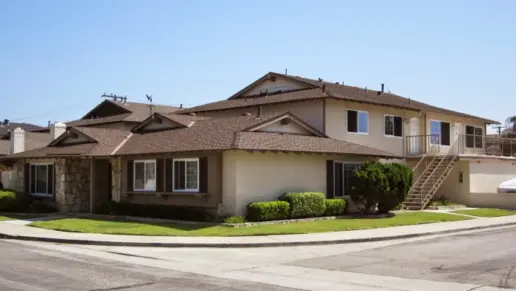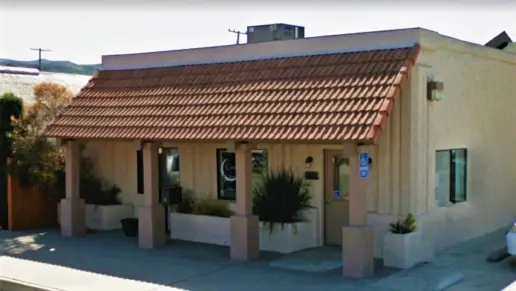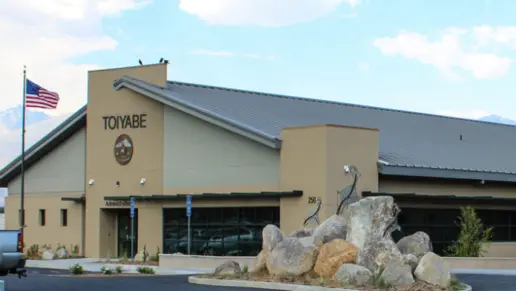About Casa Treatment Center
Casa Treatment Center is a rehab in Pasadena, California that’s exclusively for women. They treat drug and alcohol addiction at different levels depending on where you are in your recovery and what you need. They’ll be able to recommend residential or outpatient rehab for you or a sober living home.
If you go into their residential program you’ll get treatment in a comfortable setting so it feels more like a friendly and welcoming home, not like a hospital. They only have 22 women at a time so can expect personalized care. You’ll get paired with a counselor who’ll work with you to create a treatment plan. Your program can last between 30 and 90 days.
If you’re in the outpatient program instead you’ll live at home and just come to their clinic for your treatment. Their treatment schedule is flexible. There are sessions open six days a week in the morning, afternoon, and evening so you can still work and keep up with other responsibilities while you get care. How many sessions you have every week will depend on your personal treatment plan.
You’ll have individual counseling and also group therapy and group classes. There are close to 20 different groups which cover many different aspects of addiction and treatment methods, like preventing relapse, family factors, trauma counseling, addiction education, and mental health issues that you might have along with addiction. There are also 12 step meetings and therapeutic activities like yoga, nutrition therapy, meditation, and arts and crafts.
They have sober living homes too. These homes are for women who have finished their treatment but still want a structured and sober environment before they’re ready to live independently. While you’re at Casa and afterward, there are also free family programs plus free aftercare and an alumni program.
Many former clients credit Casa with helping them get their life back and say they are treated with love and kindness. For women in recovery, Casa Treatment Center really has something for everyone.
Latest Reviews
Rehab Score
Gallery


Location
Accepted Insurance


Other Forms of Payment
Self-pay involves paying for treatment out of your own pocket. You can use savings or credit, get a personal loan, or receive help from family and friends to fund your treatment. If you don't have insurance or your insurance plan doesn't cover a specific program, self-pay can help ensure you still get the care you need.
Private insurance refers to any kind of healthcare coverage that isn't from the state or federal government. This includes individual and family plans offered by an employer or purchased from the Insurance Marketplace. Every plan will have different requirements and out of pocket costs so be sure to get the full details before you start treatment.
Addiction Treatments
Levels of Care
Treatments
The goal of treatment for alcoholism is abstinence. Those with poor social support, poor motivation, or psychiatric disorders tend to relapse within a few years of treatment. For these people, success is measured by longer periods of abstinence, reduced use of alcohol, better health, and improved social functioning. Recovery and Maintenance are usually based on 12 step programs and AA meetings.
Drug rehab in California teaches participants constructive ways to stay clean and sober. Treatment revolves around helping individuals stop using the substance they are addicted to and learn healthy habits to avoid relapse.
Many of those suffering from addiction also suffer from mental or emotional illnesses like schizophrenia, bipolar disorder, depression, or anxiety disorders. Rehab and other substance abuse facilities treating those with a dual diagnosis or co-occurring disorder administer psychiatric treatment to address the person's mental health issue in addition to drug and alcohol rehabilitation.
A combined mental health and substance abuse rehab has the staff and resources available to handle individuals with both mental health and substance abuse issues. It can be challenging to determine where a specific symptom stems from (a mental health issue or an issue related to substance abuse), so mental health and substance abuse professionals are helpful in detangling symptoms and keeping treatment on track.
Opioid rehabs specialize in supporting those recovering from opioid addiction. They treat those suffering from addiction to illegal opioids like heroin, as well as prescription drugs like oxycodone. These centers typically combine both physical as well as mental and emotional support to help stop addiction. Physical support often includes medical detox and subsequent medical support (including medication), and mental support includes in-depth therapy to address the underlying causes of addiction.
Programs



Clinical Services
Creativity is inherently healing, and can help those in recovery express thoughts or feelings they might not otherwise be able to. Creative arts therapy can include music, poetry/writing, painting, sculpting, dance, theater, sandplay, and more. Unlike traditional art, the final product matters far less than the experience of creation and expression itself.
Eating disorders include anorexia, bulimia, binge eating, and dysfunctional eating patterns. Many psychologists and other mental health professionals consider eating disorders to be food addictions, meaning food is being used in an addictive way (similar to drug or alcohol addiction). Certain substance abuse treatment programs will have treatment for eating disorders as one of the services offered. An eating disorder may also present as a co-occuring disorder or dual diagnosis alongside drug and alcohol addiction.
Research clearly demonstrates that recovery is far more successful and sustainable when loved ones like family members participate in rehab and substance abuse treatment. Genetic factors may be at play when it comes to drug and alcohol addiction, as well as mental health issues. Family dynamics often play a critical role in addiction triggers, and if properly educated, family members can be a strong source of support when it comes to rehabilitation. Family members play an integral role in participants’ success and also receive the benefits of healing as women complete the treatment and recovery process. Families are educated about the disease of addiction and encouraged to share their own feelings and struggles while taking part in discussion groups, activities, educational lectures, speakers meetings and group sharing sessions. These programs are mandatory for all family member visitors of Residential Treatment participants. Family dynamics, communication, trust, addiction as a family disease, Al-anon principals and 12-step principles for recovery are key components of our Family Counseling and Education programs.
Group therapy is any therapeutic work that happens in a group (not one-on-one). There are a number of different group therapy modalities, including support groups, experiential therapy, psycho-education, and more. Group therapy involves treatment as well as processing interaction between group members.
In individual therapy, a patient meets one-on-one with a trained psychologist or counselor. Therapy is a pivotal part of effective substance abuse treatment, as it often covers root causes of addiction, including challenges faced by the patient in their social, family, and work/school life.
Life skills trainings involve all the skills a person must have in order to function successfully in the world. These include time management, career guidance, money management, and effective communication. Truly successful addiction recovery is based on the ability to not only live substance-free, but to thrive. Life skills teaches the practical necessities of functioning in society, which sets clients up for success in life, and therefore sobriety.
Nutrition therapy, aka medical nutrition therapy (MNT), is a way of treating physical, emotional, and medical conditions through diet. Specific dietary plans are designed by professional nutritionists or registered dietitians, and patients follow them in order to positively affect their physical and mental health.
Amenities
-
Residential Setting
Accreditations

LegitScript has reviewed Casa Treatment Center as part of their certification program, and has determined that it meets the LegitScript standards for legality, safety and transparency.
LegitScript verified in November 2019

The National Association of Addiction Treatment Providers (NAATP) is a professional association that represents organizations in the field of addiction services. Founded in 1978, NAATP's mission is to advance addiction services and ensure that high-quality addiction treatment is available and accessible.
NAATP Member: Yes
Member ID: 116
Contact Information
160 N. El Molino Avenue
Pasadena CA, 91101














